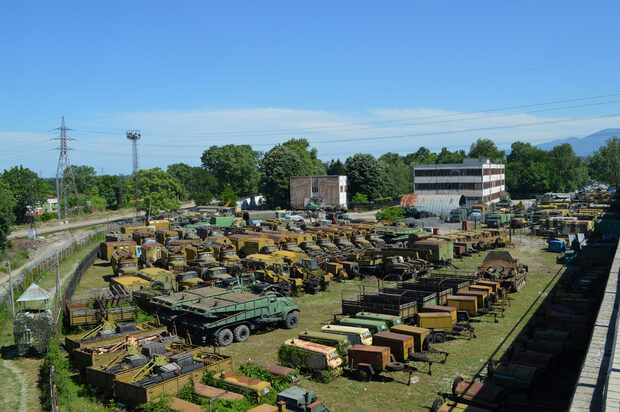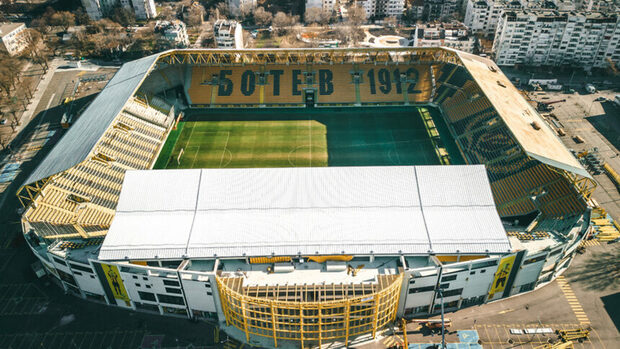If there is a single collective lesson imparted over the past three years, it's that predicting important events, even in the "foreseeable future", is nearly impossible. 2020 surprised us with a global pandemic (and, in the case of Bulgaria - the start of a new wave of political protest and instability) and 2022 kicked off with the launch of the largest and most destructive conventional war in Europe since WWII. With this caveat in mind, KInsights will try to pinpoint key dates and events that should mark the new year, in chronological order.
January
Bulgaria needs to submit its territorial plans for the Just Transition (in line with the EU-wide transition from coal dependence) otherwise it risks losing serious amounts not only of cohesion funds but also of the recovery plan.
February
Telecom operators will once again change prices in line with annual inflation, which will be reflected in customers' March bills. They are allowed to index contracts by about 17%, but in theory they might not apply the maximum allowed increase.
The congress of the Bulgarian Socialist Party (BSP) will take place on 11 and 12 February. Some dissidents among the Socialists will try to trigger an early election of a chairperson and oust Kornelia Ninova. Ms Ninova has had a controversial tenure, holds problematic views on social and political issues (the Istanbul Convention and the Russian war on Ukraine, for example), but has kept the party away from GERB's grip. All of this - for good or for bad - might change if she loses her position.
March
With a very high probability, the new early parliamentary elections will be held at the end of March or the first week of April, as it is very unlikely that BSP can negotiate a viable cabinet with the last exploratory mandate.
After 1 March, the price of cigarettes will gradually start to rise because of new excise duty rates. Cigarette prices will rise by an average of 20-30 stotinki per pack, "smokeless" - by 40 stotinki, and packed tobacco - by about 80 stotinki per pack every year until 2026.
Bulgaria is expected to receive the second installment of the Recovery and Sustainability Plan worth 724 million euro by the end of the first quarter of 2023. But, if this happens, the country has to adopt or change 66 pieces of legislation, about a third of which are the responsibility of (a currently blocked) parliament. Bulgaria did not receive an advance payment under the plan and the subsequent delay risks that Sofia might not be able to fully implement it.
May
Project intake for the first phase of the new building renovation program ends. In this first stage, 100% of the costs for insulation are covered. The second stage, which will cover up to 80% of the renovations, is expected to open soon after.
June
The sixth month will arrive with two convergence reports - by the ECB and the European Commission, respectively - on Bulgaria's progress in meeting conditions for euro adoption. The government is to ask the two institutions for an extraordinary assessment, which will determine whether the country will be able to join the euro area from 2024, which is the official target. Inflation could be a problem when it comes to quantitative criteria, with indications from Brussels and Frankfurt that they would be willing to make concessions given the extreme circumstances of the past few years. Also, the necessary legal changes should have been drafted and adopted by then, and technical preparations will be a challenge for business throughout the year.
Turkey's presidential election - seen as one of the key events this year because for the first time since Erdogan came to power in 2002, there is a chance for political change in the country. The nature of governance in Bulgaria's largest neighbor is no trifling matter, not least because of the contract signed in the first days of 2023 for the use of its gas terminals.
July
Old age pensions will increase by a revised 12% under the so-called Swiss rule (50% of 50% of the increase in insurance income and the consumer price index.)
New electricity and heating prices come into force. If current market trends continue, it is expected that changes will not be as drastic as in 2022, which saw an average increase in heating services of 30%.
After a 15-year absence, Bulgaria returns to the Venice Architecture Biennale. In December, the Ministry of Culture announced a competition for a curatorial project for national participation in its 18th edition. The organization of the Bulgarian participation is carried out in cooperation with the two professional organizations - the Chamber of Architects in Bulgaria and the Union of Architects in Bulgaria.
October
The regular round of local elections ought to be held in the second half of the month. (Four years ago, the first round was on October 27, but the exact date will be set by the president.) These elections are seen as more important than parliamentary ones because controlling local government and municipal resources, including appointments and funding, allows for the strengthening of the electoral base that also secures the path to central power.
The key question is whether - and to what extent - WCC, which has grown as an elitist, Sofia-centered party - will be able to convene regional party structures on time, as well as whether they will be able to collaborate with Democratic Bulgaria to win key large cities from GERB. The battle for Sofia promises to be legendary.
The Austrian chancellor pointed to a new discussion on Bulgaria's Schengen entry in October, while for Dutch Prime Minister Mark Rutte it is still "too early" to discuss it. Both countries want to see concrete results (functioning institutions, political will for reforms and rule of law) before giving the green light.
If there is a single collective lesson imparted over the past three years, it's that predicting important events, even in the "foreseeable future", is nearly impossible. 2020 surprised us with a global pandemic (and, in the case of Bulgaria - the start of a new wave of political protest and instability) and 2022 kicked off with the launch of the largest and most destructive conventional war in Europe since WWII. With this caveat in mind, KInsights will try to pinpoint key dates and events that should mark the new year, in chronological order.












